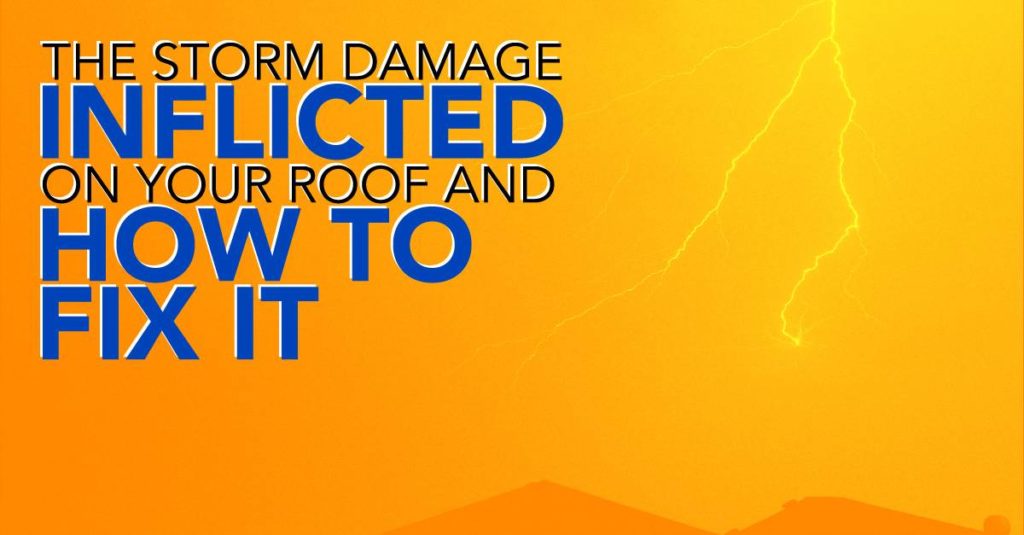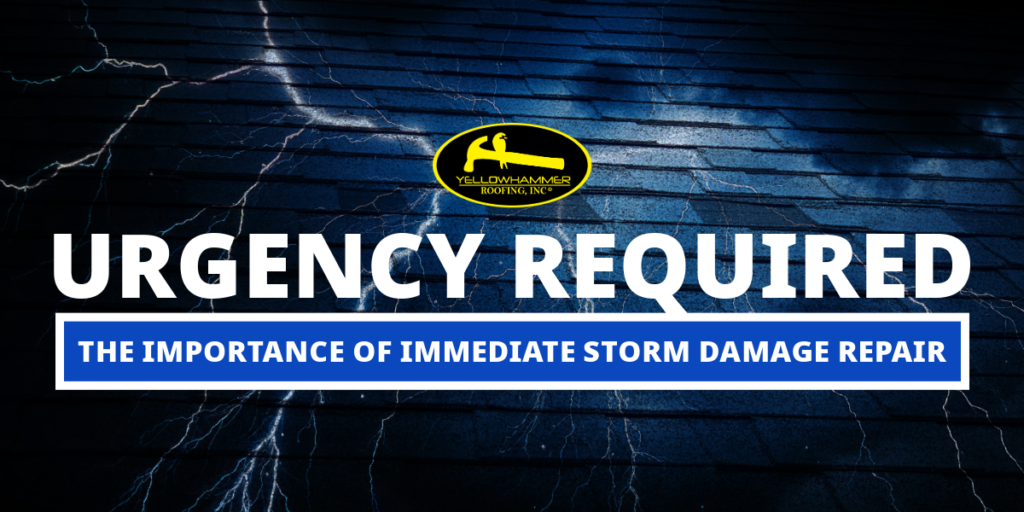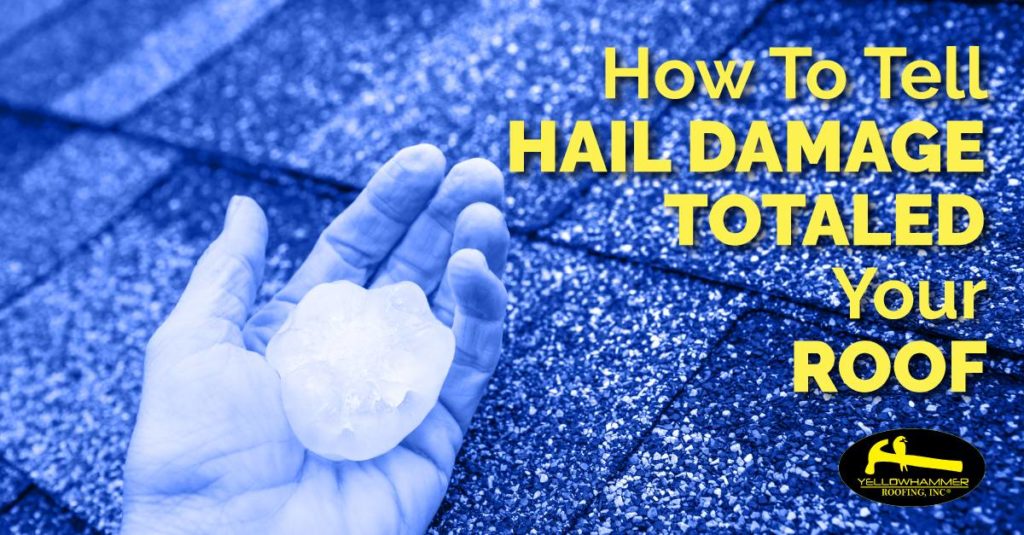Among Alabama’s Top 10 weather events, according to the National Weather Service, are three hurricanes, one snow storm (yup; a snow storm, in 1993), a tropical storm, four tornadoes, and one heat wave. Birmingham has stood in the path of many of those historic weather systems. It’s not a record to be either proud nor ashamed of, but it does provide a note of caution. Your Birmingham home’s roof can be damaged by a whole lot more than a heavy downpour.
The Rare Snow Storm
The 1993 snowfall which dumped a foot of snow on Birmingham was a rarity, to be sure, but since temperatures can plummet into freezing digits, your home’s roof can feel the effects of freeze-and-thaw cycles. Birmingham already gets a lot of moisture from the Gulf and low temperatures can create ice problems which shorten the life of shingle roofs. Water infiltration is a common problem, especially if your home has no water and ice shield along valleys, around dormers or at the roof edge.
The Common, Unwelcome Tornado
The terror of a tornado is often followed by the blessed relief felt when you see your home is still standing. Count your blessings, help your neighbors, and then have your local roofer inspect your home’s roof for damage.
Tornadoes may not have leveled your home, yes, but they can still cause significant damage to your roof. Debris thrown about by the winds around a tornado can tear gouges in shingle roofs, dent and pierce metal roofing, and shatter tile roofs.
The high winds of tornadoes also lead to air pressure differences which can cause a roof to buckle, lift, or lead to water infiltration. Older roofs are more susceptible to subtle problems like water infiltration, loosened shingles, or detached flashings.
Hurricanes
For Birmingham residents, hurricanes are not cliches. All too common, and all too dangerous, hurricanes seem to hit the city with unsettling regularity. Nearly always the combination of heavy rains and high winds cause some level of problems with roofs:
- Gutters clog
- Wind drives water under shingles and around flashing edges
- Shingles uplift or crack
- Wind or debris tear away drip edges
- Sections of sheathing (beneath the shingles) rise, their nails loosened
Hurricanes’ strong winds are fully capable of peeling back a metal or shingle roof, too. Many roofers offer stronger hurricane clips to protect against hurricane damage. Discuss options with your local, reliable roofer to minimize damage, but keep the roofer’s number handy to be ready after any major blow.
Heat Waves
The 1980 heat wave from mid-July to September saw temperatures climb up to an improbable 108° F. What happens to your home’s roof under sustained, unrelenting heat?
In fiberglass-asphalt shingles, volatile compounds evaporate from the shingles, making them prematurely brittle. Years of good use can disappear when subjected to brutal summer heat. Metal roofs can expand and contract, causing mechanical fasteners to pop out under lateral stress.
Heat also takes a terrible toll on sheathing, since inadequate attic ventilation is a chief cause of shortened life spans for all types of roofs. With high humidity and high temperatures, black mold can set in on the underside of the sheathing. This is not only unpleasant, but it can also be dangerous.
Enough Problems; Solutions!
Well, between snow, tornadoes, hurricanes, and heat, what is a Birmingham homeowner to do to protect a roof? Some remedies are within the average person’s skill set, while others call for professional expertise.
First, last, and always: Stay off your roof! Even a low-slope roof is dangerous, and steep-slope roofs so popular with Birmingham houses are especially slippery places. Stay off the roof!
Maintain your roof through conscientious gutter cleaning, professional annual inspection, and basic landscaping:
- Use an extension ladder to keep gutters free of granules, leaves, twigs and pine needles
- Keep downspouts open, and downspout extensions free and clear, to direct water away from your foundation
- Have a landscape service prune back overhanging branches to avoid blunt impacts from breaking limbs (and to reduce squirrel infestations)
- Keep chimneys in good shape, relying on a chimney sweep or masonry service to prevent cracks or weakened flashing
Disaster Strikes
Keep the contact information for a trusted, well-established, local roofer handy. When a weather emergency hits, assess the damage from the ground, contact your insurance company, and then call your roofer.
Having an ongoing relationship with your roofer, through annual maintenance and regular small repair work, can give you better service after a hurricane, tornado or heat wave. Your roofer already knows your roof’s condition and may have matching, replacement roofing materials on hand.
If Mother Nature has inflicted her damage on your Birmingham home’s roof, please contact us today at Yellowhammer Roofing. We have a proud history of helping our Birmingham neighbors, both in commercial properties and residential settings, and we are ready to help you, too.






